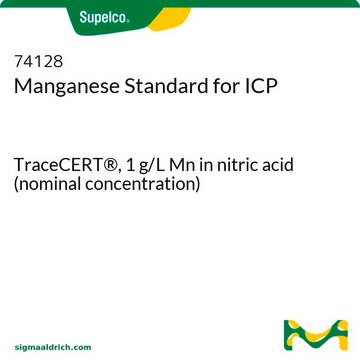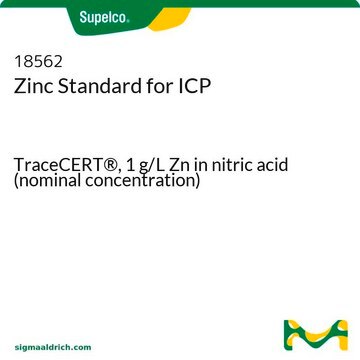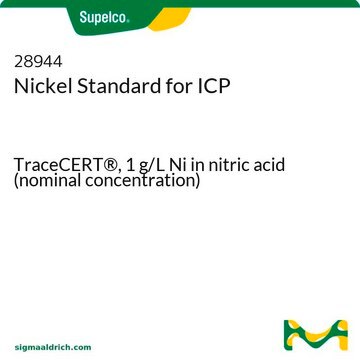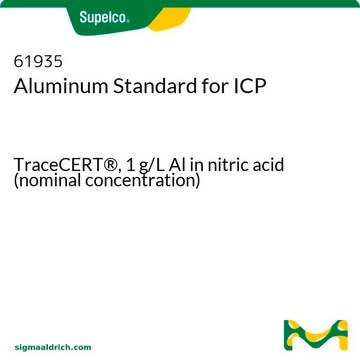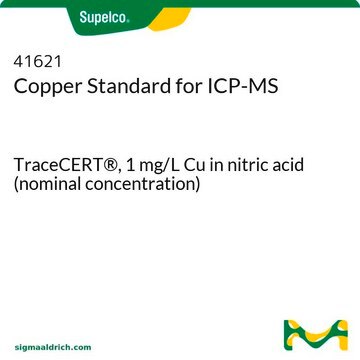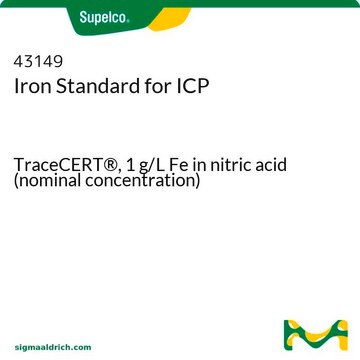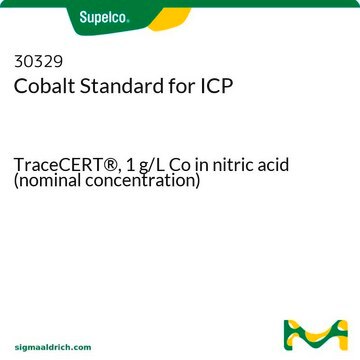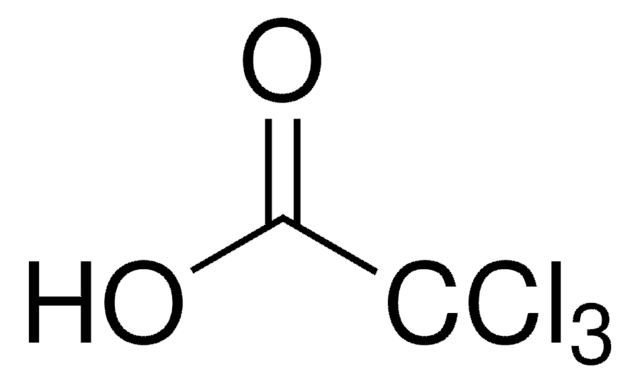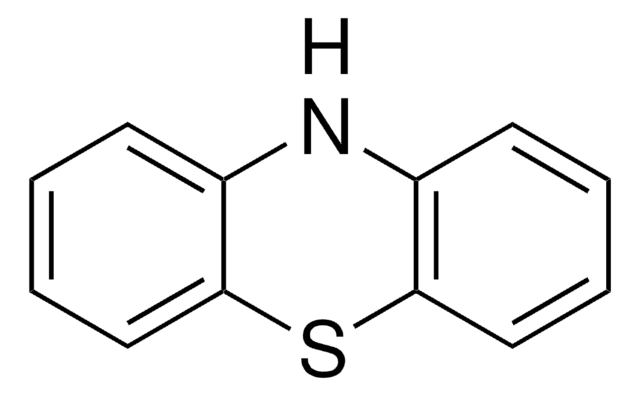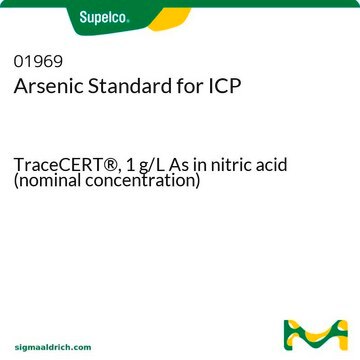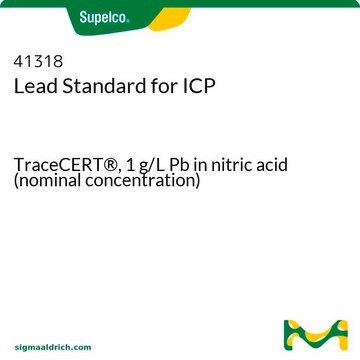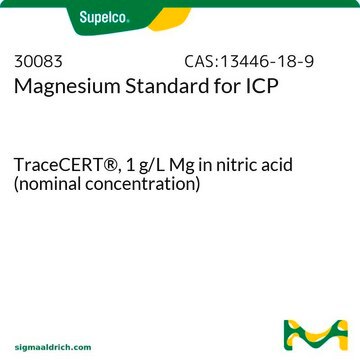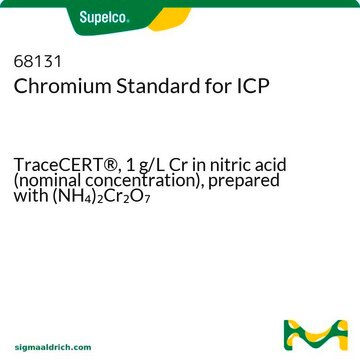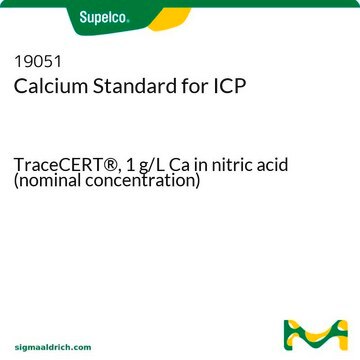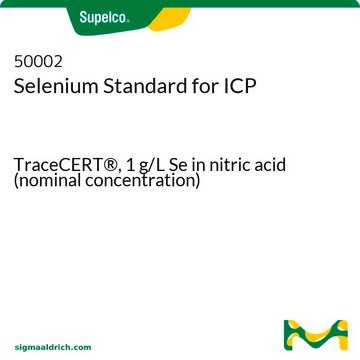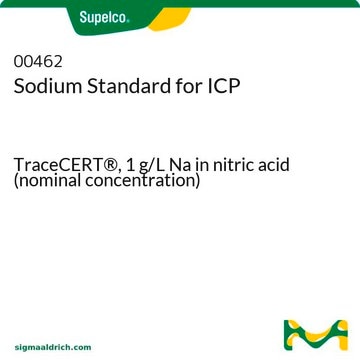68921
Copper Standard for ICP
TraceCERT®, 1 g/L Cu in nitric acid (nominal concentration)
About This Item
Recommended Products
grade
certified reference material
TraceCERT®
Quality Level
product line
TraceCERT®
concentration
1 g/L Cu in nitric acid (nominal concentration)
technique(s)
ICP: suitable
application(s)
agriculture
cleaning products
cosmetics
food and beverages
personal care
format
single component solution
General description
Please visit ISO certificates and Site Quality Self-Assessments to access the current certificates of accreditation.
Download your certificate at http://www.sigma-aldrich.com to view certified values, including uncertainty, date of expiry, and detailed information about trace impurities.
Application
Analysis Note
Other Notes
Legal Information
signalword
Warning
hcodes
Hazard Classifications
Aquatic Chronic 3 - Eye Irrit. 2 - Met. Corr. 1 - Skin Irrit. 2
wgk_germany
WGK 2
flash_point_f
Not applicable
flash_point_c
Not applicable
ppe
Faceshields, Gloves, Goggles, type ABEK (EN14387) respirator filter
Choose from one of the most recent versions:
Already Own This Product?
Find documentation for the products that you have recently purchased in the Document Library.
Customers Also Viewed
Articles
Testing for heavy metals in food and beverages? You understand that prolonged trace exposure to heavy metals such as arsenic (As), cadmium (Cd), chromium (Cr), lead (Pb), mercury (Hg), and thallium (Tl), via the food, beverages and drinking water we consume can cause serious health risks. Fortunately, increasingly sensitive tests are in place to ensure our food is safe. Discover the recent advances in analytical technologies for heavy metal detection and the products, services and technical support available to help you keep us all safe. Because we all want to trust what we eat.
Our team of scientists has experience in all areas of research including Life Science, Material Science, Chemical Synthesis, Chromatography, Analytical and many others.
Contact Technical Service